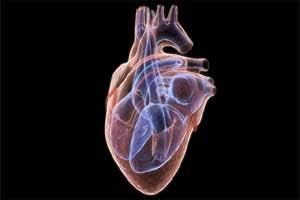- Home
- Medical news & Guidelines
- Anesthesiology
- Cardiology and CTVS
- Critical Care
- Dentistry
- Dermatology
- Diabetes and Endocrinology
- ENT
- Gastroenterology
- Medicine
- Nephrology
- Neurology
- Obstretics-Gynaecology
- Oncology
- Ophthalmology
- Orthopaedics
- Pediatrics-Neonatology
- Psychiatry
- Pulmonology
- Radiology
- Surgery
- Urology
- Laboratory Medicine
- Diet
- Nursing
- Paramedical
- Physiotherapy
- Health news
- Fact Check
- Bone Health Fact Check
- Brain Health Fact Check
- Cancer Related Fact Check
- Child Care Fact Check
- Dental and oral health fact check
- Diabetes and metabolic health fact check
- Diet and Nutrition Fact Check
- Eye and ENT Care Fact Check
- Fitness fact check
- Gut health fact check
- Heart health fact check
- Kidney health fact check
- Medical education fact check
- Men's health fact check
- Respiratory fact check
- Skin and hair care fact check
- Vaccine and Immunization fact check
- Women's health fact check
- AYUSH
- State News
- Andaman and Nicobar Islands
- Andhra Pradesh
- Arunachal Pradesh
- Assam
- Bihar
- Chandigarh
- Chattisgarh
- Dadra and Nagar Haveli
- Daman and Diu
- Delhi
- Goa
- Gujarat
- Haryana
- Himachal Pradesh
- Jammu & Kashmir
- Jharkhand
- Karnataka
- Kerala
- Ladakh
- Lakshadweep
- Madhya Pradesh
- Maharashtra
- Manipur
- Meghalaya
- Mizoram
- Nagaland
- Odisha
- Puducherry
- Punjab
- Rajasthan
- Sikkim
- Tamil Nadu
- Telangana
- Tripura
- Uttar Pradesh
- Uttrakhand
- West Bengal
- Medical Education
- Industry
How heart grows and adapts to high blood pressure

Washington: A new study has identified how two proteins control the growth of the heart and its adaptation to high blood pressure (hypertension).
Lead investigator Dr. Guadalupe Sabio of the Centro Nacional de Investigaciones Cardiovasculares Carlos III (CNIC) explained that the results not only increase the understanding of the mechanisms used by cardiac cells to grow and adapt, but could also help in the design of new strategies to treat heart failure caused by excessive growth of the heart.
The study shows for the first time that two proteins, p38 gamma and p38 delta, control heart growth.
The heart adapts to the changing needs of each stage of life by adjusting its size. In this way the heart grows in line with the rest of our body, including during pregnancy, in a process called cardiac hypertrohpy. However, excessive physical exercise, hypertension, and obesity can trigger excessive heart growth (pathological hypertrophy), a situation that can lead to a heart attack. Understanding the molecular processes that regulate heart function and growth is therefore of immense importance.
The team found that p38 gamma and p38 delta regulate the growth of the left ventricle, the largest and strongest heart chamber, responsible for pumping oxygenated blood to the body. They showed that the hearts of mice lacking these proteins are smaller than normal. These hearts, although they function normally, are incapable of responding to external stimuli, such as high blood pressure.
Sabio noted that this new information could help in the design of new strategies to combat heart conditions caused by anomalous growth of heart muscle.
Lead investigator Dr. Guadalupe Sabio of the Centro Nacional de Investigaciones Cardiovasculares Carlos III (CNIC) explained that the results not only increase the understanding of the mechanisms used by cardiac cells to grow and adapt, but could also help in the design of new strategies to treat heart failure caused by excessive growth of the heart.
The study shows for the first time that two proteins, p38 gamma and p38 delta, control heart growth.
The heart adapts to the changing needs of each stage of life by adjusting its size. In this way the heart grows in line with the rest of our body, including during pregnancy, in a process called cardiac hypertrohpy. However, excessive physical exercise, hypertension, and obesity can trigger excessive heart growth (pathological hypertrophy), a situation that can lead to a heart attack. Understanding the molecular processes that regulate heart function and growth is therefore of immense importance.
The team found that p38 gamma and p38 delta regulate the growth of the left ventricle, the largest and strongest heart chamber, responsible for pumping oxygenated blood to the body. They showed that the hearts of mice lacking these proteins are smaller than normal. These hearts, although they function normally, are incapable of responding to external stimuli, such as high blood pressure.
Sabio noted that this new information could help in the design of new strategies to combat heart conditions caused by anomalous growth of heart muscle.
Next Story


